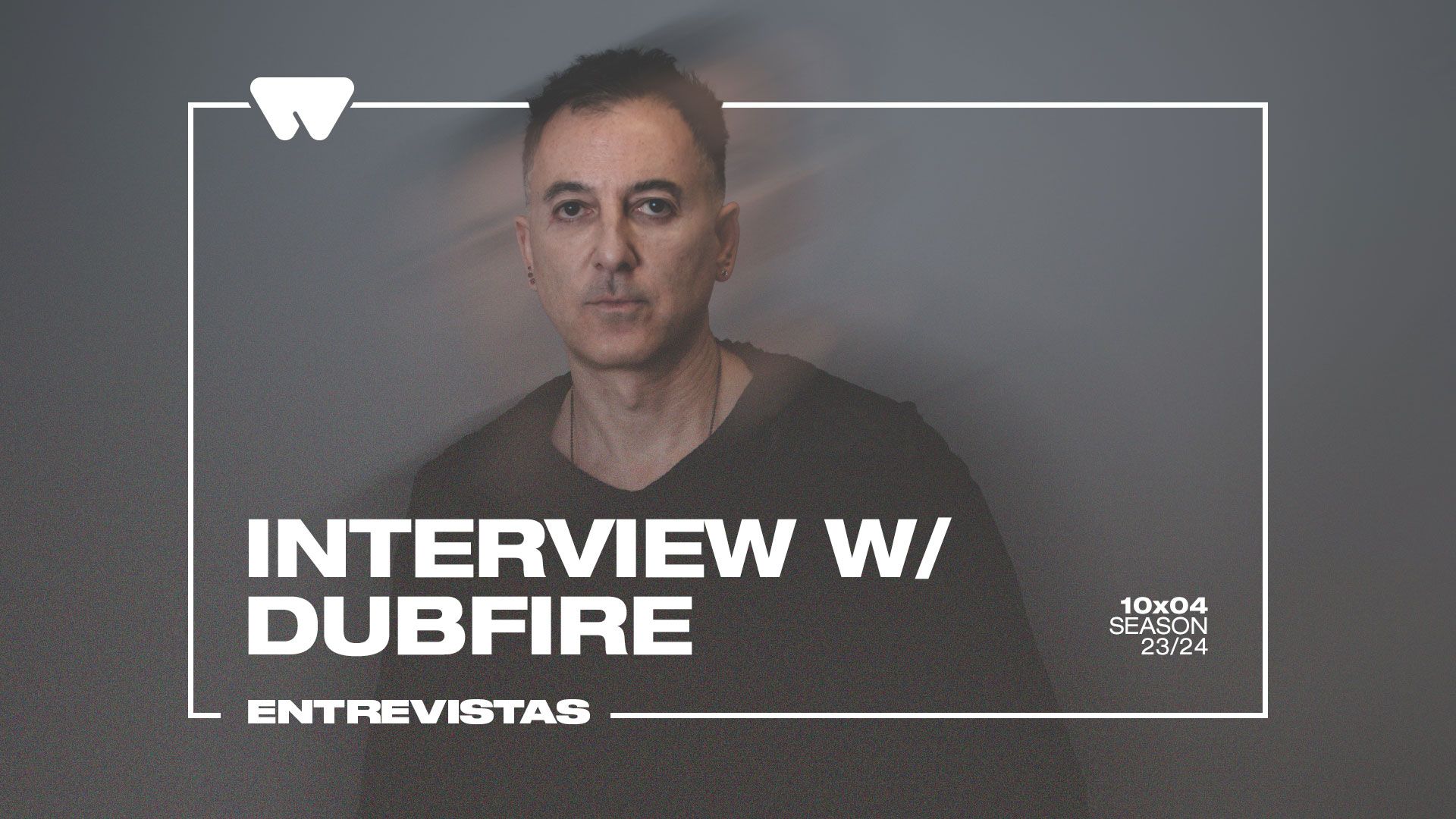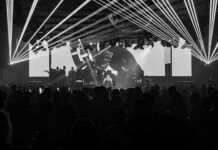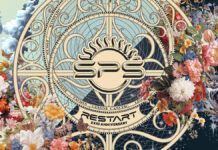Wololo Sound – ¡Hola! Muchas gracias por recibirnos en esta entrevista exclusiva con Wololo Sound. Dubfire es uno de los nombres más importantes de la música electrónica de las últimas décadas, ¿cómo habéis adaptado vuestro sonido, vuestro marketing y vuestro equipo para manteneros en la cima durante tantos años?
Dubfire – A medida que la tecnología y la escena de la música han ido evolucionando a lo largo de las décadas, siempre he intentado reinventar mi sonido y mi estética, así como mis actuaciones como DJ y en directo. Creo que un motor constante para mí también ha sido la música y artistas nuevos e increíbles que descubro a lo largo de ese viaje, que me inspira para nuevas ideas y direcciones en mi carrera.
WS — Hello! Thank you very much for having us in this exclusive interview with Wololo Sound. Dubfire is one of the most important names in electronic music of the last decades, how have you adapted your sound, your marketing and your gear to stay at the top for so many years?
Dubfire – As technology alongside our dance music scene has evolved over the decades, I have always tried to re-invent my sound and aesthetic, as well as my DJ and live performances. I think a constant driver for me has also been the incredible new music and artists I discover along that journey, which helps to inspire new ideas and direction in my own career.
WS – En una carrera tan dilatada, ¿hay algún acontecimiento, persona, lanzamiento o espectáculo concreto que piensas que ha marcado un antes y un después en su trayectoria?
Dubfire – Sin duda, mis primeras colaboraciones como Deep Dish con John Selway y BT – junto con la tutoría / amistad que entablamos con Danny Tenaglia y Carl Craig a principios de los 90. Fue un punto de inflexión importante en nuestra carrera. Y más tarde, cuando me lancé en solitario, fueron las primeras producciones (“Roadkill” y “RibCage”) y remezclas (“Grindhouse” y “Spastik”), así como la alianza con Richie Hawtin, las que me ayudaron a impulsar un nuevo capítulo. No estaría aquí sin su guía y apoyo.
WS – In such a long career, is there any specific event, person, release, or show that you think has marked a before and after in your path?
Dubfire – Without a doubt my early collaborations as Deep Dish with John Selway and BT – along with the mentorship / friendship we entered into with Danny Tenaglia and Carl Craig in the early 1990’s – was a major turning point in our career. And later when I went solo, it was the initial early productions (“Roadkill” and “RibCage”) and remixes (“Grindhouse” and “Spastik”) as well as the alliance I forged with Richie Hawtin which helped propel me into a new chapter. I wouldn’t be here without their collective guidance and support.
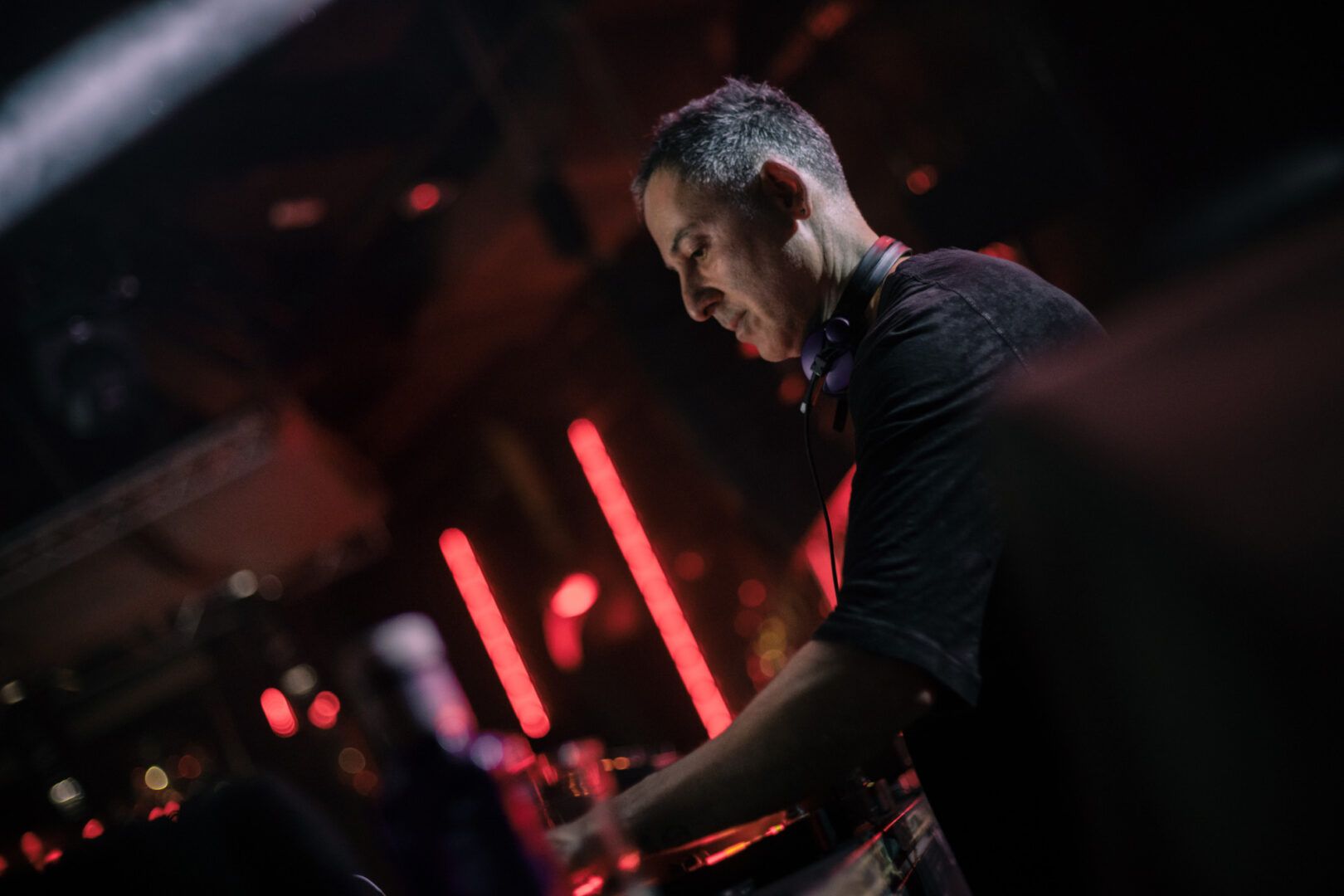
WS – Dubifre es sinónimo de sonido progresivo y minimalista, estilos que han pasado por momentos “difíciles” en los últimos años. ¿Crees que es fundamental adaptarse de alguna manera a las tendencias actuales, o hay que mantenerse siempre fiel al estilo propio?
Dubfire – Bueno, aunque mucha gente me asociaba con el sonido “minimal techno” de mediados de los 2000, en realidad fui en parte responsable de sacar la música techno del espectro minimal y llevarla a un nuevo territorio. Y no estoy de acuerdo con tu apreciación de que el “progresivo” lo está pasando mal ahora mismo. De hecho, ocurre lo contrario y así ha sido durante la última década. Con ver el éxito de Tale of Us / Afterlife o Solomun / Dynamic y la miríada de artistas con ideas afines que han contribuido a renovar el sonido house progresivo de los 90 en lo que es hoy, que es un éxito. En mi opinión, el house progresivo o “melódico” nunca ha sido tan grande como ahora.
Como soy DJ desde hace más de 35 años, siempre he sido muy versátil y me han gustado todos los géneros musicales. Por eso, no solo me resulta desafiante, sino también refrescante y divertido poder pinchar libremente en muchos géneros. De hecho, no podría imaginar una carrera de DJ más aburrida que la de tener que pinchar un sonido específico semana tras semana.
WS – Dubifre is synonymous with progressive and minimal sound, styles that have had “difficult” moments in recent years. Do you think it is important to adapt in some way to the current trends, or always stay true to your style?
Dubfire – Well even though many people associated me with the “minimal techno” sound of the mid-2000’s, I was actually partly responsible for taking techno music OUT of the minimal spectrum and into new territory. And I don’t agree with your assessment about “progressive” having a difficult time right now. In fact the exact OPPOSITE is true and has been for the past decade. You can see this with the success of Tale of Us / Afterlife or Solomun / Dynamic and the myriad of like-minded artists who have all contributed to revamping the progressive house sound of the 1990’s into what it is today, which is extremely successful and widespread. Progressive house or “melodic” has never been bigger than it is now in my opinion.
And as I have been a DJ for well over 35 years, I have always been quite versatile and into all genres of music. So I find it not only challenging, but refreshing and fun to be able to play comfortably in many genres. In fact I couldn’t imagine a more boring DJ career than if I were to be expected to play one specific sound week after week.
WS – Si no nos equivocamos, actualmente reside en Barcelona. ¿Qué te llamó la atención de nuestro país para vivir aquí?
Dubfire – Llevo décadas viajando por todo el mundo antes de elegir Barcelona como mi segundo hogar. En mi opinión, es la mejor ciudad europea para vivir por varias razones: el buen tiempo durante todo el año, la increíble y mundialmente conocida gastronomía, el bajo coste de la vida, la posibilidad de llegar a cualquier parte de la ciudad a pie o en bicicleta, por no mencionar la proximidad a Ibiza y el hecho de que cuenta con el mejor y más rápido aeropuerto para volar. No es de extrañar que Barcelona haya sido el hogar de muchos DJ famosos de ayer y de hoy, así que tengo mucha suerte de haber encontrado mi sitio.
WS – If we’re not mistaken, you are currently living in Barcelona. What drew your attention to our country, both culturally and in terms of life quality, in order to live here?
Dubfire – I have been traveling extensively around the world for decades before I chose Barcelona as my second home. Namely because it is, in my opinion, THE best European city to live in for a number of reasons; for starters you have the beautiful year-round weather, the incredible and world-renowned gastronomy, the cost of living being very low, the way you can pretty much get to anywhere in the city by walking or on a bicycle, not to mention the proximity to Ibiza and the fact that it boasts the best / fastest airport to fly in and out of. There is little wonder why Barcelona has been a home for many famous DJs past and present so I am very lucky to have found my place there.
WS – ¿Y musicalmente? ¿Crees que España está progresando tanto como parece en la industria de la música electrónica?
Dubfire – Pues sí. De hecho, el estilo español siempre ha sido evolucionar y acoger música de todos los estilos. Un buen ejemplo son los importantes eventos culturales como Sónar y Primavera Sound, que siempre se han esforzado por contratar a una gran variedad de artistas. Esto ha educado al público español durante décadas para que quiera descubrir y apóyalos.
WS – And musically? Do you think Spain is progressing as much as it seems in the electronic music industry?
Dubfire – Yes I do. In fact the Spanish way has always been to evolve and embrace music of all styles. A good example are the important cultural events like Sonar and Primavera Sound which have always strived to book quite a diverse array of artists. This has educated the Spanish crowds for decades into WANTING to discover and support these eclectic artists and genres.
WS – De hecho, este pasado 20 de octubre has estado de nuevo en Madrid, en LAB theClub en BeRenatta. ¿Cómo ha ido este show?
Dubfire – ¡Vaya espectáculo! Había oído que las sesiones de los viernes habían ido creciendo constantemente durante el año pasado y me di cuenta de que el escenario se había bajado un poco para crear una mejor conexión con el público. Me alegro mucho de ver estos cambios y me lo pasé genial con el enérgico público madrileño, que es uno de mis favoritos.
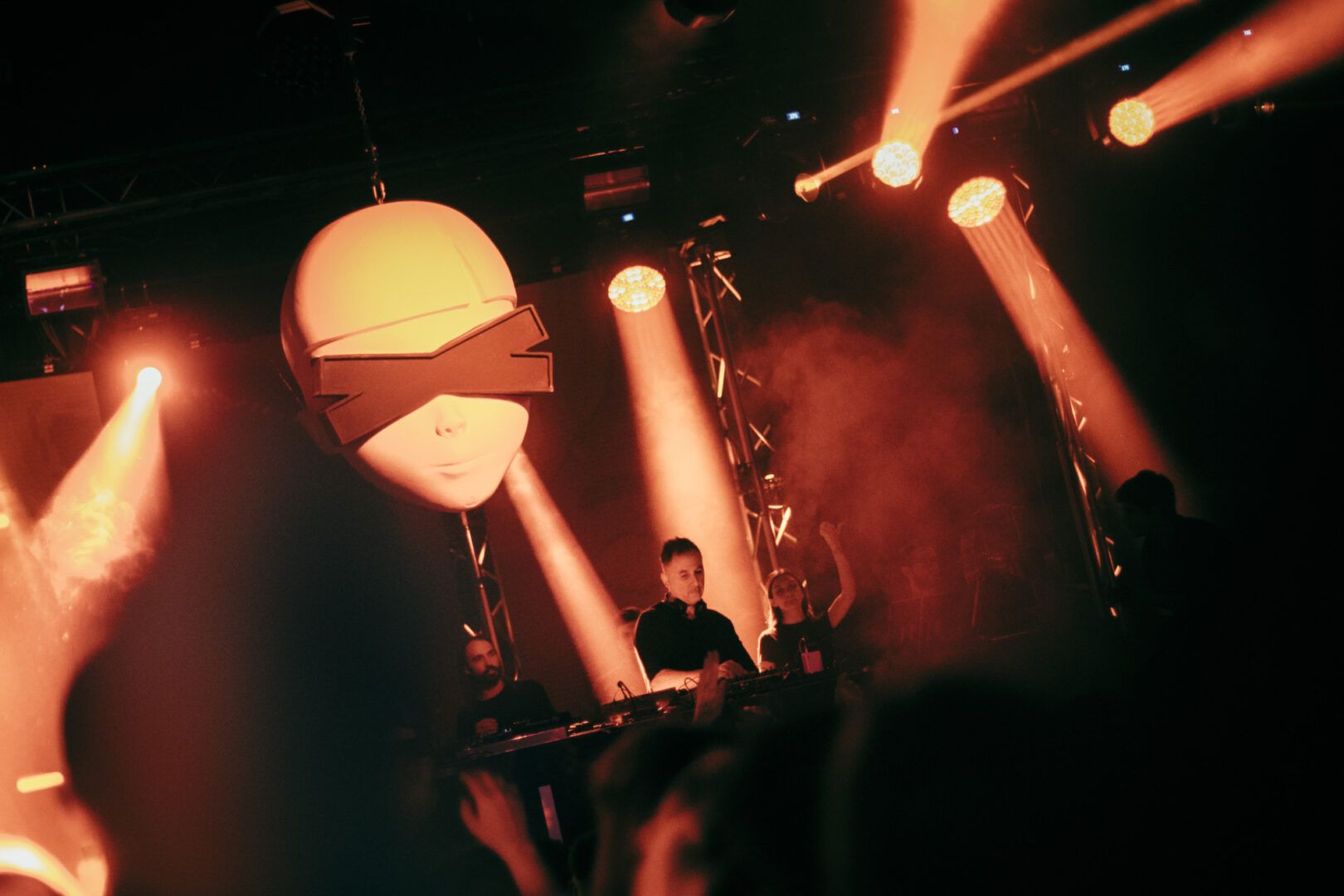
WS – ¿Te has fijado últimamente en algún artista joven o en las nuevas tendencias? ¿Quizá un nuevo sello, marca o fiestas de las que quieras hablarnos?
Dubfire – Actualmente, artistas de techno como Decka, Amotik, Vil & Cravo, Altinbas y muchos, muchos otros demasiados para mencionarlos aquí. Sin embargo, no me gusta el estilo EDM del techno, que parece ser la tendencia actual.
WS – In fact, this coming October 20th you will be in Madrid again, at LAB theClub in BeRenatta. What do you expect from this show / How did this show go? (in case of interview answer post-show)
Dubfire – When I last played, I really loved the renovations which were made to this iconic venue as well as the branding imagery which helped define the look and feel of LABthehCLUB. And the team there were very sweet in the hospitality they showed me when I celebrated my birthday there last year. So very much looking forward to being back!
WS – Terminemos con algunas preguntas cortas.
WS – Un productor con el que siempre has querido colaborar, pero aún no has podido: Maceo Plex, seguimos hablando de ello, pero parece que no podemos juntarlo.
WS – Irán / EE.UU. / España: ¿Cuál es la mejor de las tres culturas en las que ha vivido? Creo que tengo mis raíces en Irán, donde viví hasta los 7 años antes de trasladarme a Estados Unidos. Como crecer en este último país me permitió conocer la perspectiva y la cultura americanas. Pero vivir en España desde hace más de 15 años ha cambiado mi visión del mundo en cuanto a mi calidad de vida.
WS – Comida española / catalana favorita: Paella, por supuesto, pero también platos como las gambas al ajillo, jamón ibérico, patatas bravas, gazpacho y, por supuesto, todas las increíbles opciones de tapas (sin olvidar los bares de pinchos de San Sebastián). En Barcelona estamos muy mimados con la comida, muchas opciones gastronómicas. ¡Tengo una lista impresionante!
WS – ¿Un estilo de música para escuchar en casa? Electrónica no, desde luego. Suelo escuchar todo lo contrario. Actualmente, mis artistas favoritos son The National, Nick Cave and the Bad Seeds, Sigur Ros, A Place to Bury Strangers, etc…
WS – Let’s finish with some short questions!
WS – A producer you’ve always wanted to collaborate with but couldn’t: Maceo Plex; we keep talking about it, but we can’t seem to get it together haha.
WS – Iran / USA / Spain: What is the best of the three cultures where you have lived? I think that I have my roots in Iran, where I lived till I was 7 years old before moving to the USA; and growing up in the latter gave me an insight into the American perspective and culture. But living in Spain for over 15 years now has changed my worldview in terms of my quality of life.
WS – Your favourite Spanish / Catalan food: Paella of course but also favorites like gambas al ajillo, jamon Iberico, patatas bravas, gazpacho, and of course all the amazing tapas options (as well as the pinxto bars in San Sebastian!). In Barcelona we are very spoiled with incredible, simple foods, as well as many gastronomic options. I have quite an impressive list!
WS – A music style to listen to at home? Not electronic: I will usually listen to the complete opposite of electric music. Currently my favorite artists to listen to are The National, Nick Cave and the Bad Seeds, Sigur Ros, A Place to Bury Strangers, etc.


